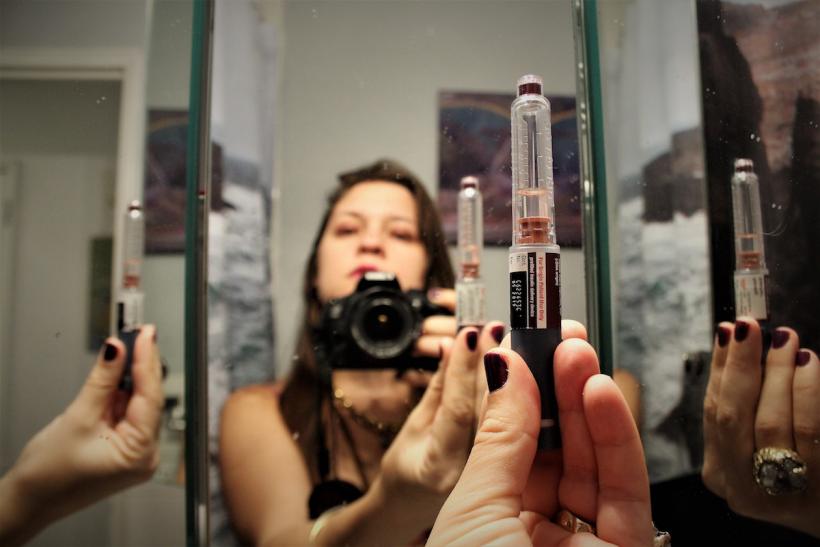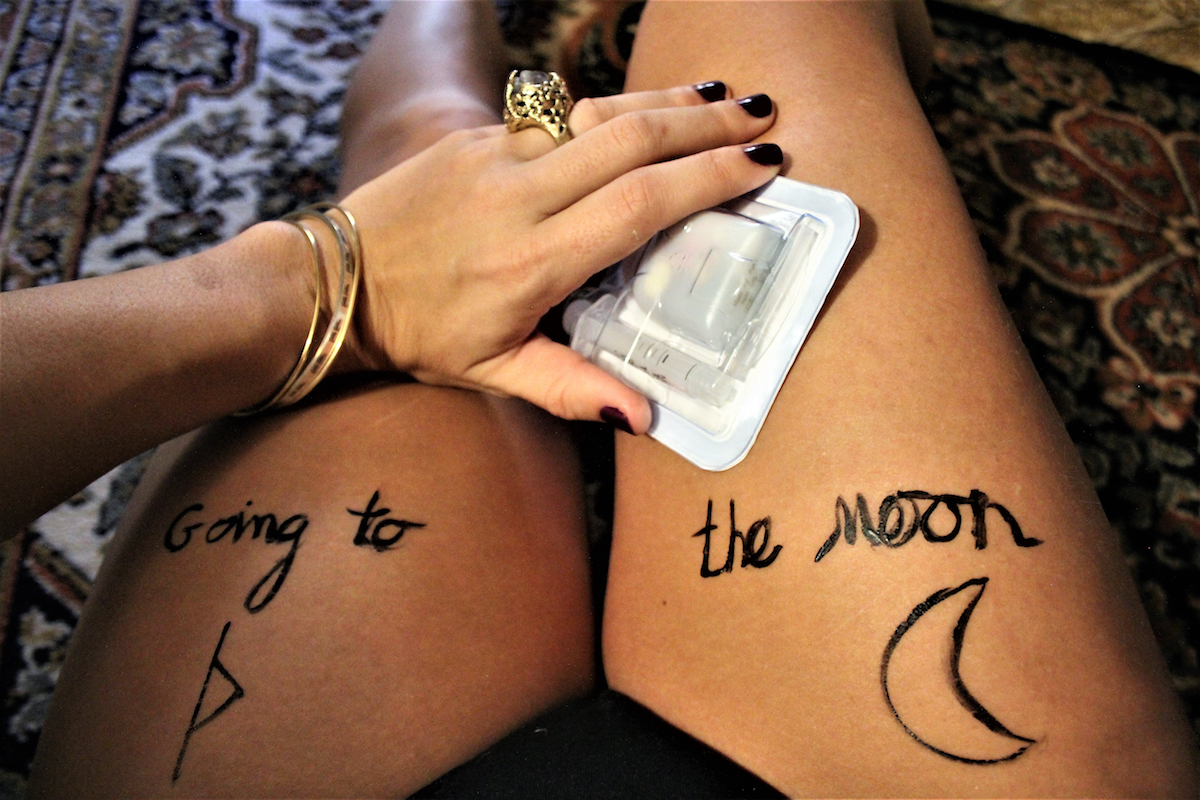
There are both grand and trite lessons one learns with a chronic illness.
On my most recent trip to Europe, my friend introduced me to his dearest friends who own a small Chateau in Thiers. They invited me out for the night to stay with them. The husband collected tribal art from around the world and held his own private collection in the Chateau’s old wine cellar. The wife, a physician, was born in Morocco and had worked all over, including Saudi Arabia. They made me a dinner of duck and local cheeses. Not to be dramatic but it will probably be one of the most incredible two days I’ll ever have in my life.
But the next day, as the husband drove me to the train to head back to Paris along the winding hills, the sun rising and casting what I call the “France yellow” along the hilltops, I felt the insides of me churn.
There are both grand and trite lessons one learns with a chronic illness.
“I shouldn’t have had that damn toast,” I muttered to myself, remembering the breakfast that was so graciously offered to me by the French couple. But what was I to do? Say no to the local bread and jam in a castle? After all, I want to live, and I tested my sugars that morning, and they were fine.
The truth was, as I got to the train station and tested my blood sugars, they were 500. The regular amount is 80-120, so 500 leaves you extremely dehydrated and feeling hungover without the fun of alcohol the night before. This time it came from a slice of toast. Other times it comes out of nowhere. I test, manage and try to control, and yet my efforts grant me nothing in return, so why not do things like eat jam?
This feeling of “screw it” is perpetual. It happens when I skip the cheesecake at a client dinner, trying to be good, only to have my blood sugars spike sky high anyway since they put sugar in the meat sauce. It happens when I try to exercise, just to have my blood-sugars go crashing low so that I have to eat a bunch of chocolate to come back up and make my efforts at losing weight futile. It happens when I go to the doctor every few months to try and make a plan, (a five-star doctor mind you), only to find out my A1C is still an 8.0 when it should be below a 7. It occurs when I cancel a date or dinner with friends to stay home since my sugars are off, only to have them be corrected almost immediately and have missed out on all the fun. It's a war against myself.

Do I neglect living to prevent dying? I don’t want to lead my life that way.
Sure some people entirely throw caution to the wind and don’t do anything remotely healthy for themselves, but then there’s us who try our hardest and suffer the consequences anyway no matter how hard we try to be a “good version of sick." And we’re shamed. We’re shamed when we complain about not feeling well and a family member asks, “Well wasn’t there sugar in that stick of gum you’re chewing?”
I know they mean well. Indeed I do, but a pit of rage boils inside of me whenever I have a “flare up,” and it’s immediately put on trial. It strikes a chord because I’m constantly battling with diabetes and sometimes need to vent without the side of judgment. Afterall, having a chronic illness is hard. It also strikes a chord in my loved ones because they want me to be okay, and can’t grapple with the fact that’s not just a simple way for that to happen.
You Might Also Like: My Chronic Illness Left Me Broke And Homeless, So Meditation Is My Medication
The truth is, some of us are just going to be sick no matter what. That’s what illness does. And I’ve said goodbye to too many tasty meals, dinners with friends, and meetings with clients to feel that staying home like an invalid will somehow make my life better.
It doesn’t.
What makes my life better is doing well and doing often. Traveling. Seeing new things. Trying new foods. Working. Making progress. That makes me feel like I’m living, and so I try my best, but when I don’t feel well, I just don’t care. I push through it. A wave washes over me, more significant than the feelings of nausea and headaches that reminds where I am — on a train in France overlooking the countryside. A pit grows in my stomach as I’m about to present to a group of 50 people for a client that says, “I’m going to give this lecture.” I speak as I fight off faint feelings, standing at the front of a stage presenting an innovative technique for construction to a room of 100 project managers.
I know what it’s not what people want to hear from a sick person.
They want to hear we’re either perfect patients that do well and prosper or patients that suffer but do this to themselves. They don’t want to hear that some people feel chronically terrible and get through it anyway. It’s not easy to categorize and deal with when we end up hospitalized or have to stay home, and there’s no suggestion as to why. We all want to reason with illness but we can’t.
I can, however, decide that sometimes I don’t care.








